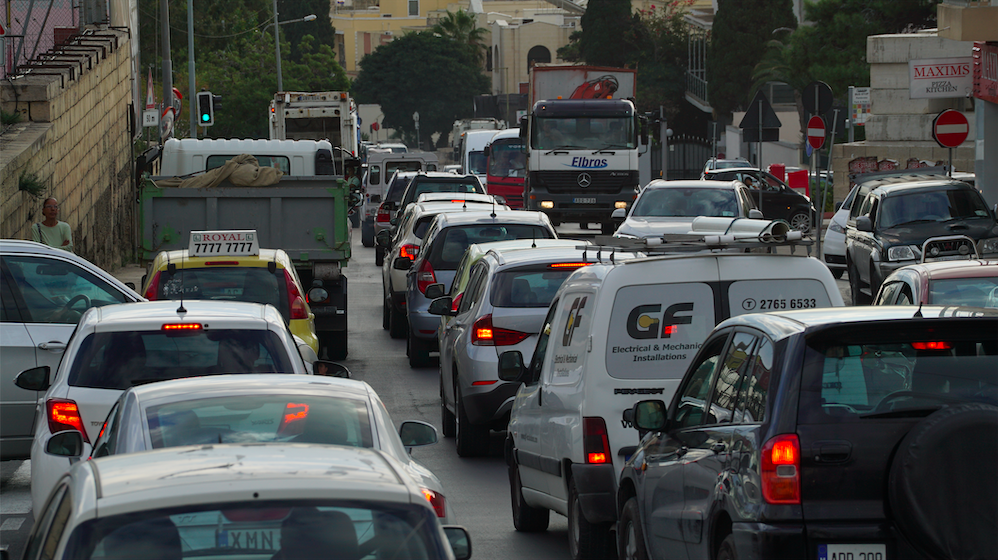Conflict Of Interest, Forgotten Heritage And A Wayward Tunnel: Here’s What NGOs Claim Is Wrong With The DB Project

The controversial City Centre project in Pembroke has been put on hold after a court of appeal sent their application back to the drawing board over issues concerning a Planning Authority board member’s conflict of interest.
Beyond leaving residents and NGOs with a temporary victory, a court document has revealed the extent of their claims:
1. The conflict of interest called into question the credibility of the Planning Authority

PA Board Member Matthew Pace
Matthew Pace, one of the 10 board members to vote in favour of the project, was at the centre of the court’s primary reason for ripping up DB’s permit at the former ITS site in Pembroke.
As revealed by Shift News, Pace was one of the co-owners of the Swieqi branch of the RE/MAX Alliance… one of several agencies seeking investors and residents for the development.
There was “no doubt” from the court that Pace had an “actual and direct interest” in seeing that the project would be approved, adding that while his undeclared interest was not opposed by any stakeholders, he was duty bound to declare it.
“It is the court’s opinion that Matthew Pace objectively and subjectively failed the required impartiality,” Judge Mark Chetcuti explained in the ruling.
“Transparency, as stated by the Tribunal, should not be just a written word but acted upon,” he continued
He said he was also “surprised” by the way the Tribunal viewed this question, noting that whether or not all the involved parties were aware of the project had no relevance to Pace’s alleged conflict of interest.
“[A board member publicising a project before its approval] calls into question the credibility of the member and the institution itself,” the court said.
The court closed its decision by declaring that all “board members must declare whether their position on tribunal is tenable when the project comes before them again.”
2. No studies were ever conducted on the feasibility and cost of the tunnel crucial to the development

Traffic On St Andrew's Road. Photo by Steve Zammit Lupi
NGOs say that the tunnel crucial to the approval of the development seems like it might have more holes than a sieve after the case exposed some glaring problems in the proposal.
To start, the decision to develop the tunnel as a measure to mitigate the effects of the project happened well after the application was submitted and public consultation conducted. The government’s initial plans were only to upgrade St Andrew’s Road, as part of the EU’s priority plans for the Ten-T network in Malta.
They say that no studies were ever conducted on the geomorphology of the tunnel, its interior design, the technology used to treat emissions from the tunnel, the tunnel’s feasibility, and how exactly it will be paid for.
To make matters worse, the project was allegedly approved with no indication regarding an appropriate time frame for the construction of the tunnel, with the government, and in effect the taxpayer, expected to foot the bill for interim measures.
However, as noted by Transport Malta CEO David Sutton, even the upgraded network (minus tunnel) would fail once the development was in full operation.
The financial burden placed upon the state seems all the more puzzling considering that the tunnel would be the development’s only access point by car.
3. Architecturally important features were ‘mistakenly described’ as having no value

Former ITS Site In Pembroke
NGOs say that architectural elements of the St George’s Barracks that form part of the site and are considered to be of “vital importance” were “mistakenly” described by the project’s architect Darren Sciberras.
NGOs say Scibberras had insisted that a large part of the original building was actually new and had to be demolished. This was rubbished by court experts, who also noted that veranda and lower levels rooms had original ribbed arched ceilings, stone arches, slabs and wooden beams. Two original regimental plaques were also never identified.
4. Policies were either ignored or discarded

The proposed City Centre Project
Beyond the Tribunal’s glaring misses, NGOs also noted that it seemed to discard policies that stipulated mandatory dimensions of apartment floor space, while also seemingly getting around the required open space relative to gross floor space as indicated in the FAR police.
The Tribunal’s decision to “ignore” the Policy Adjustment Hotel 2014 (which stipulates that hotels cannot be built on scheduled areas) was called in the question, also adding the “fact that by not allowing space around the scheduled building resulted in an increase in the hotel’s height and visual impact.”